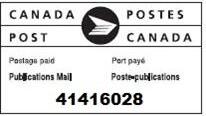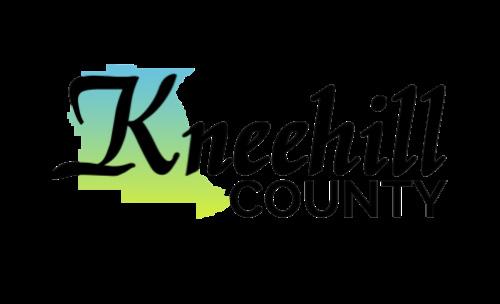
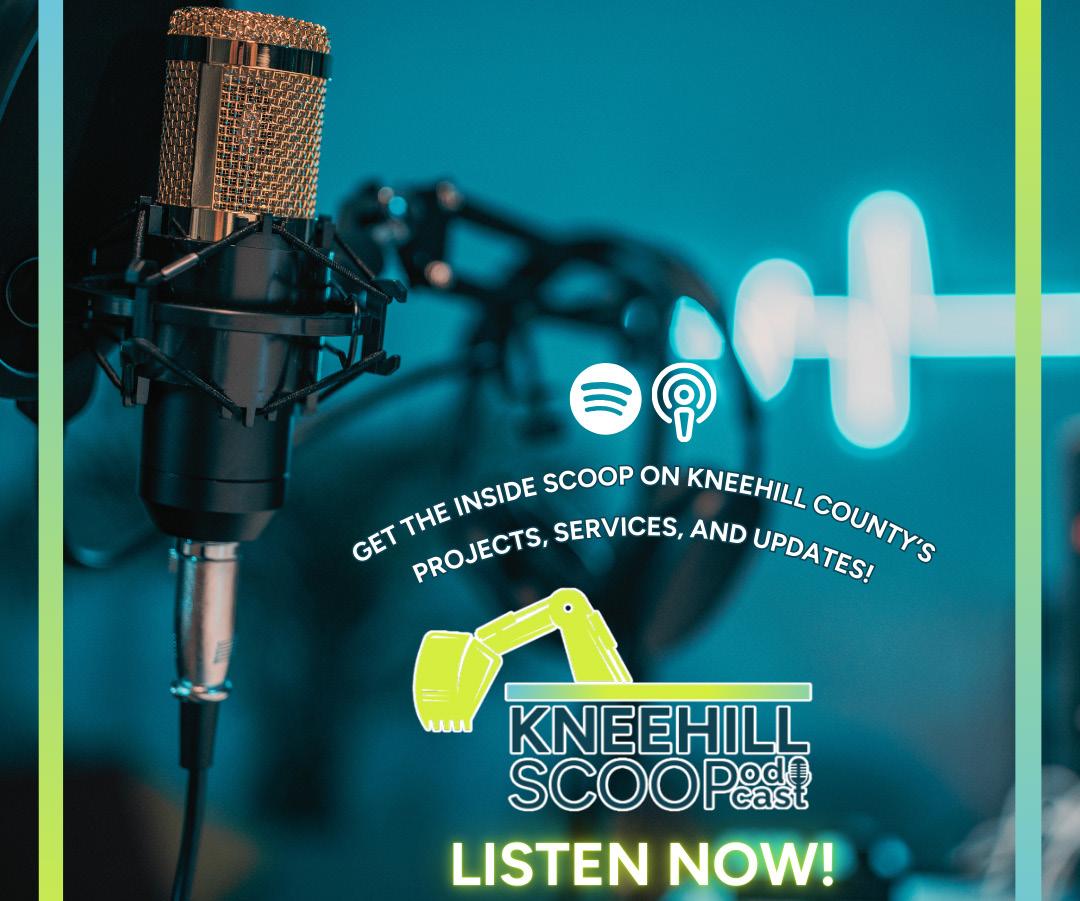



Winter has finally arrived, in full force. Our crews have been hard at work keeping roads clear and safe. A big thank you to them for their dedication in sometimes challenging conditions.
As we welcome 2025, I’d like to take a moment to reflect on the past year and look ahead to what’s in store for Kneehill County.
Renewable energy was a hot topic in 2024, with Council continuing to advocate on behalf of ratepayers. As these discussions evolve, we remain focused on ensuring responsible development that considers local concerns and community impact.
The Municipal Development Plan (MDP) review was also a key focus this past year. Council engaged with residents and stakeholders throughout 2024, carefully considering community input and long-term planning priorities. With deliberations nearing completion, we look forward to finalizing a plan that reflects the needs and vision of our County.
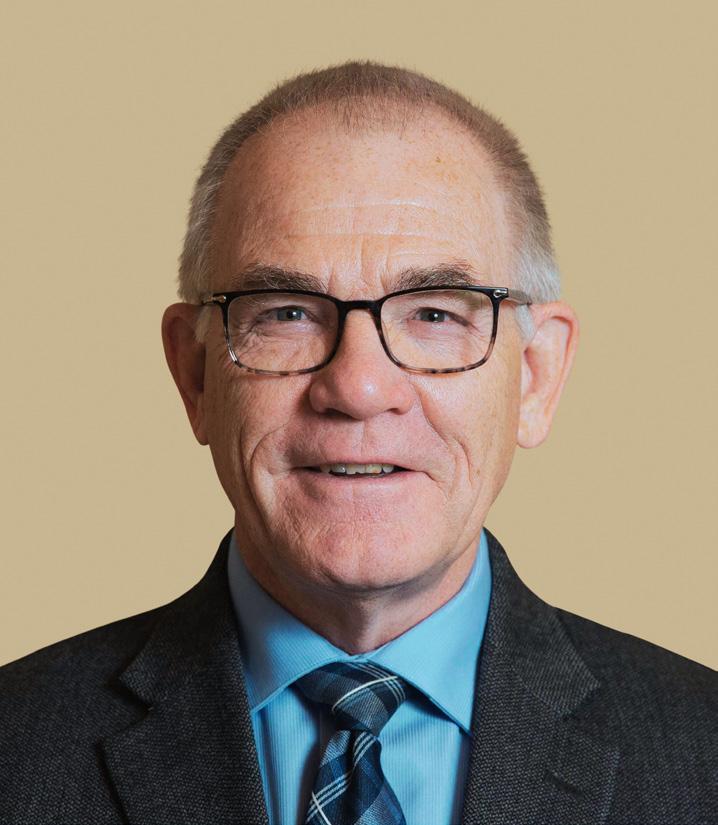
In December, Council passed the 2025 budget, ensuring we continue to provide essential services while maintaining fiscal responsibility. As always, we remain committed to supporting our residents and businesses.
2025 is an election year—an important opportunity for residents to have their voices heard. More details on the election process and key dates can be found on our website.
On a lighter note, I was honoured to be the first guest on Kneehill Scoop, our new podcast that offers insight into County operations and initiatives. The first episode is out now—give it a listen!
Wishing everyone a happy, healthy, and prosperous 2025.- Reeve Kenneth King
Organizational Meeting October 22, 2024: Kenneth King was nominated and elected Reeve, and Faye McGhee nominated and elected Deputy Reeve.
November 12, 2024: Council directed administration to engage legal representation to take part in AUC proceeding 29380 (Lone Butte Solar Project) with a budget of $75,000 to be funded from the operating budget. Council also directed administration to write a letter to Minister Neudorf regarding concerns about private/business interests attempting to alter the Land Suitability Ranking System (which can affect potential placements of renewable energy projects).
November 25, 2024: Council moved the meeting into a Public Hearing for Bylaw 1905, Municipal Development Plan. Following the Public Hearing, Council directed administration, in the spirit of cooperation, to arrange a meeting with the Village of Linden and the Village of Acme before February 28, 2025, and prior to further readings of Bylaw 1905.
Missed a Council meeting?

December 10, 2024: Council provided second and third reading to Bylaw 1908, which establishes the composition of Kneehill County Council, divides the County into divisions with defined boundaries, and sets the titles for the Chief Elected Official and Councillors. With the passing of this bylaw, the village of Torrington is now amalgamated into Division 4.
January 14, 2025: Kneehill County reviews policies every four years to ensure they remain current with legislative requirements. The Grader Gravel Services Policy (13-2) was reviewed and revised, with potential changes including the removal of private snow clearing and grading services due to liability concerns, adjustments to grader rotation requirements, and the integration of dirt trail maintenance into the policy. The Road Gravelling Program would see a reduction from 640km to 485km annually, with a new monitoring program implemented to track road conditions and ensure maintenance remains effective. This policy change is expected to save approximately $500,000 annually, though revenue from private services will decrease by about $5,000 annually. After review, Council directed administration to bring the proposed Policy back to a future Council meeting for more discussion.
Council highlights are posted on Kneehill County’s website and social media following each Council meeting.
These highlights give a broad overview of Council decisions, including links to more information and the corresponding YouTube video.
Division 7
Reeve Kenneth King
Phone: 403-443-0285
Email: kenneth.king@kneehillcounty.com
Division 1
Deputy Reeve Faye McGhee
Phone: 403-436-1611
Email: faye.mcghee@kneehillcounty.com
Division 2
Councillor Debbie Penner
Phone: 403-818-3108
Email: debbie.penner@kneehillcounty.com
Division 3
Councillor Jerry Wittstock
Phone: 403-312-6196
Email: jerry.wittstock@kneehillcounty.com
Division 4
Councillor Carrie Fobes
Phone:403-588-4624
Email: carrie.fobes@kneehillcounty.com
Division 5
Councillor Laura-Lee Machell-Cunningham
Phone: 403-443-0752
Email: lauralee.machell-cunningham @kneehillcounty.com
Division 6
Councillor Wade Christie
Phone: 403-588-1992
Email: wade.christie@kneehillcounty.com
Council Meetings
• February 11 & 25
• March 11 & 25
• April 8 & 22
Committee of the Whole Meetings
• February 18
• April 15
• May 22
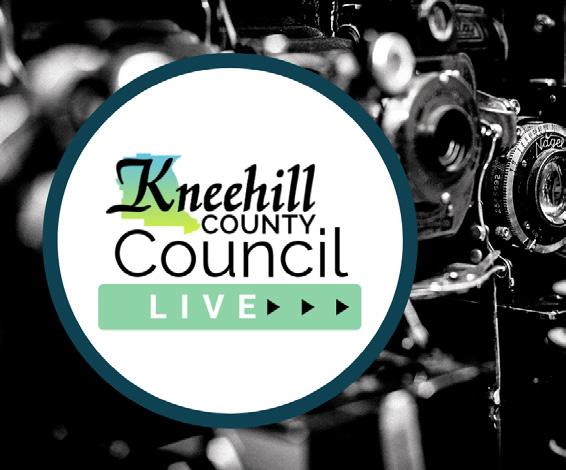
Follow us on Facebook, Twitter, and Instagram: @kneehillcounty, and tune in to our YouTube channel to watch Council meetings live!
The next general municipal election will be held on Monday, October 20, 2025. The Nomination Period is from January 1 to September 22, 2025, with the nomination deadline set for September 22, 2025, at 12 p.m.
Alberta’s Municipal Affairs made several changes to the Local Authorities Election Act and the Municipal Government Act in 2024. These changes will impact voters and candidates alike.
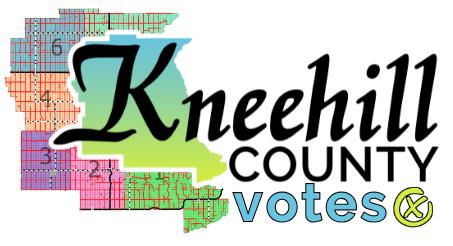
This year, you will have to register to vote in the municipal election. The voter list is based on the existing provincial list. Instructions on how to check if you are registered, as well as how to register if your name is not already on the list, will be available in early 2025.
Due to recent changes to the Local Authorities Election Act, unless a candidate has already submitted their nomination papers, a notice of Intent to Run must be filed with the County prior to accepting or expending any campaign funding. Additionally, Kneehill County is required to maintain a register of candidates who have given notice of Intent to Run and make this register publicly available on our website.
Visit our website to view Information for Candidates, Information for Voters, the Intent to Run registry, and more. kneehillcounty.com/2271/2025-Municipal-Election

Kneehill County is excited to launch Kneehill Scoop, a brand-new podcast designed to keep residents informed about County projects, services, and initiatives—straight from the source. Each episode features interviews with County leaders, staff, and special guests, diving into the topics that matter most to our community.
Our very first episode is now available, featuring a conversation with Reeve King! Available wherever you get your podcasts, or visit our website to listen now.
To make the podcast even more accessible, we’ve created a dedicated web page where you can:
• Listen to each episode
• Find relevant links & resources related to the discussion
• Submit your questions for future episodes—have a topic or concern you’d like addressed? Let us know!
Tune in today and stay informed with Kneehill Scoop!

Stay Informed with Notify Me: Kneehill County’s Digital Notification System
Notify Me is a digital notification system designed to keep you informed about critical County services, from transfer site changes to fire bans and water service interruptions. With Notify Me, you’ll get real-time updates straight to your phone or email, ensuring you’re always in the loop.
Changes to transfer site schedules, accepted materials, and closures can impact your routine. With Notify Me, you’ll receive timely notifications about:
• Adjusted operating hours
• Temporary closures
• Changes in accepted materials
• Special disposal events or guidelines
Fire bans can be implemented or lifted depending on weather conditions and fire risk levels. Instead of checking multiple sources, get instant updates when:
• A fire ban is declared or lifted in Kneehill County
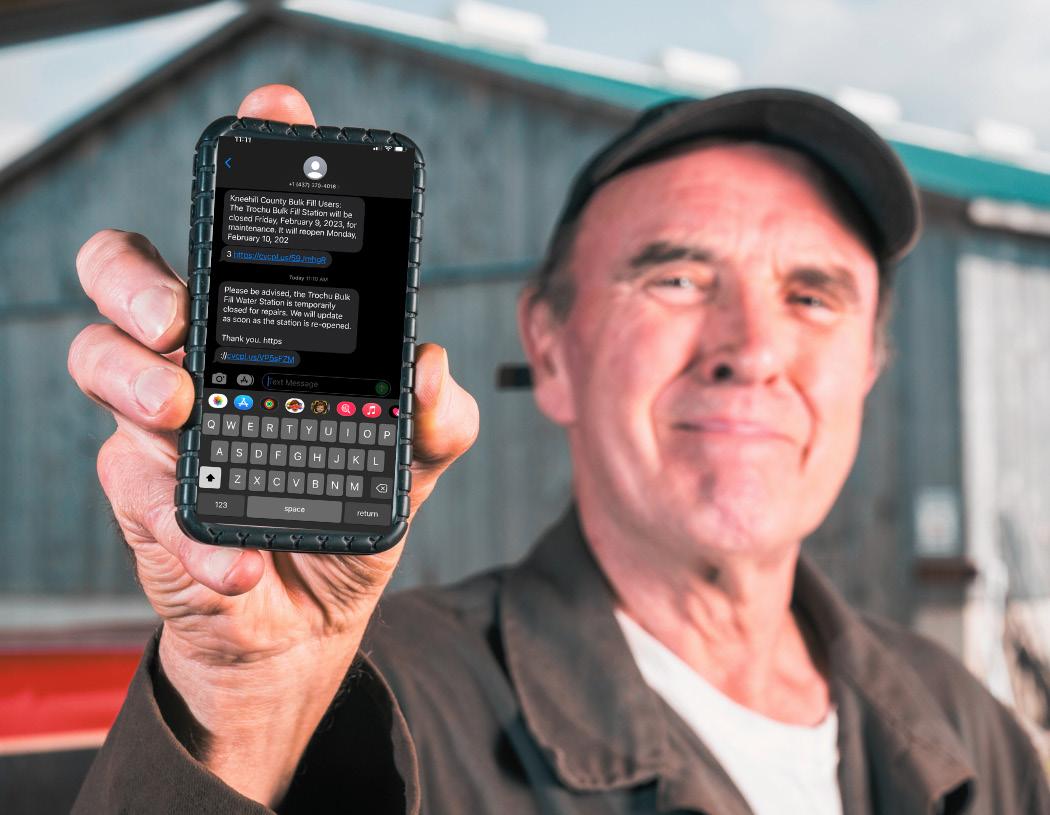
Water service interruptions, repairs, or bulk water station closures can be inconvenient if you don’t know about them ahead of time. Notify Me ensures you receive:
• Alerts about scheduled and emergency water line repairs
• Bulk water station closures or maintenance updates
• Boil water advisories and other essential notices

Signing up is quick and easy! Visit our website <-----(scan the QR code) to find the Notify Me section. Choose the notifications that matter most to you and select your preferred method of delivery—text, email, or both!
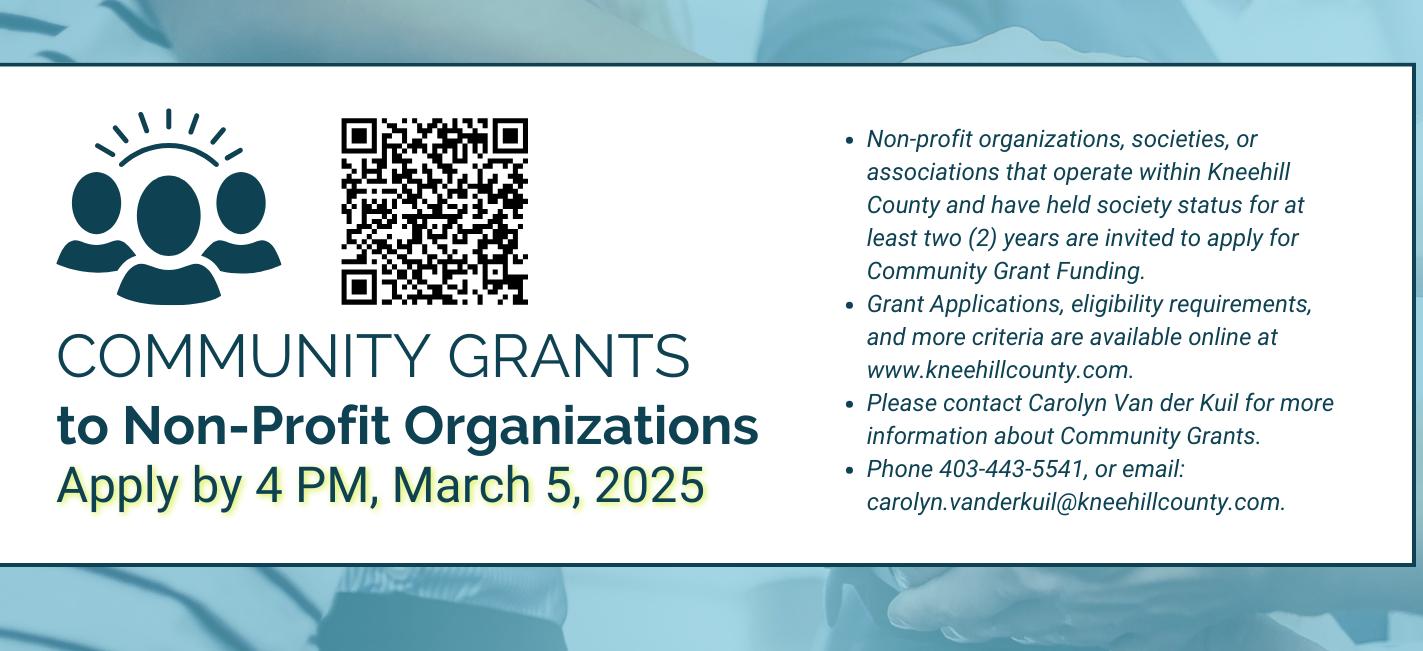
Each year, Kneehill County Council approves an Operating and Capital Budget to keep the County running smoothly. These budgets determine how money is spent on services, projects, and infrastructure while ensuring the County remains financially stable.
Creating the budget is a team effort. Staff from every department review costs, look for savings, and find ways to improve efficiency while keeping services at the level residents expect. Council’s top priorities— maintaining service levels, keeping taxes competitive, and planning for the future—guide every decision.
To help balance the budget and avoid large tax increases, the County also reviews user fees, making sure that costs for certain services are fairly shared between users and the County.
The 2025 Capital Budget focuses on repairing and replacing key infrastructure, like roads, equipment, and County facilities. Since these projects can be costly, Kneehill County works hard to secure provincial and federal grant funding, stretching tax dollars further.
The 2025 Operating Budget keeps most services at the same level as last year. However, inflation and other cost increases mean some adjustments were needed. Council also reviewed new projects and initiatives, carefully weighing their benefits against costs.
Like everywhere else, Kneehill County is feeling the impact of rising costs. Some of the biggest challenges include:
• Inflation & Higher Costs: Everything from fuel and materials to equipment and utilities costs more than before.
• Provincial Funding Uncertainty: Changes to how properties are assessed for taxes could impact County revenue.
• Slower Growth: Most residential property value increases are due to market changes, not new development, which makes it harder to balance tax rates.
To prepare for long-term infrastructure needs, the County is working on an Asset Management Plan. This plan will help track and manage County assets, ensuring roads, buildings, and equipment are properly maintained and replaced when needed. Following Alberta’s guidelines will also make the County eligible for more grants to help fund future projects.
The budget process isn’t just about numbers—it’s about planning for the future while listening to residents. Council considers public feedback from meetings and community discussions when deciding how to allocate funds.
Kneehill County’s 2025 Budget aims to balance rising costs, maintain services, and invest in critical projects, all while keeping taxes reasonable. By planning ahead and managing resources wisely, the County is working to ensure a strong, sustainable future.
For more details on the budget, visit our website.


Richardson Ground Squirrels (RGS), locally referred to as Gophers, are a naturally occurring rodent species in Kneehill County and play an important ecological role as a food source for many predators. When populations expand and disperse rapidly, they can pose a significant economic threat to agriculture and severely impact natural ecosystems. Ag Services recommends developing an understanding of RGS biology and utilizing an Integrated Pest Management (IPM) approach to maintaining gopher populations below threshold limits. A combination of population monitoring, cultural prevention, and lethal control measures are commonly recommended strategies for effective control.
Richardson Ground Squirrels first appear in early spring, with the males coming out of hibernation from the end of February to early March, depending on the weather. Two weeks later, the females come up for a short 10day mating season. After a 23-day gestation period, the litters are born underground and remain there for the first month of their life. Because of their annual life cycle and foraging habits, control measures such as baiting or hunting are best taken in the early spring when both males and females have emerged before the litters are born.
The first step in the IPM process is determining your population threshold limits and monitoring the population. Do regular checks of your fields for mounds and burrows and keep track of the number and density of holes. Count the active mounds
within a 1-meter space as you walk 100 meters. Typically, one mound per 2 strides is considered a heavy population. Your threshold can also be based on the economic threshold of crop or forage loss occurring.
The most important step in an IPM program is prevention. RGSs prefer short vegetation where they can see their surroundings. Maintaining pasture health and implementing rotational grazing can encourage enough ground cover from grasses to discourage populations from moving in and causing more vegetation loss. For cropland, leave headland grasses tall to provide an uninhabited border and encourage predator species such as foxes and coyotes. Raptor (carnivorous bird) platforms, nesting boxes, and perches can also encourage natural predation.
When the population hits a high threshold level, it’s time to move to the final IPM step, lethal control. These measures are temporary at best, and once the population is reduced, additional measures such as cultural control and prevention should be taken to prevent the population from rising again. Lethal control measures can vary in intensity, risk, and effectiveness, so it is best to consider all of the available options and choose what suits your situation best.
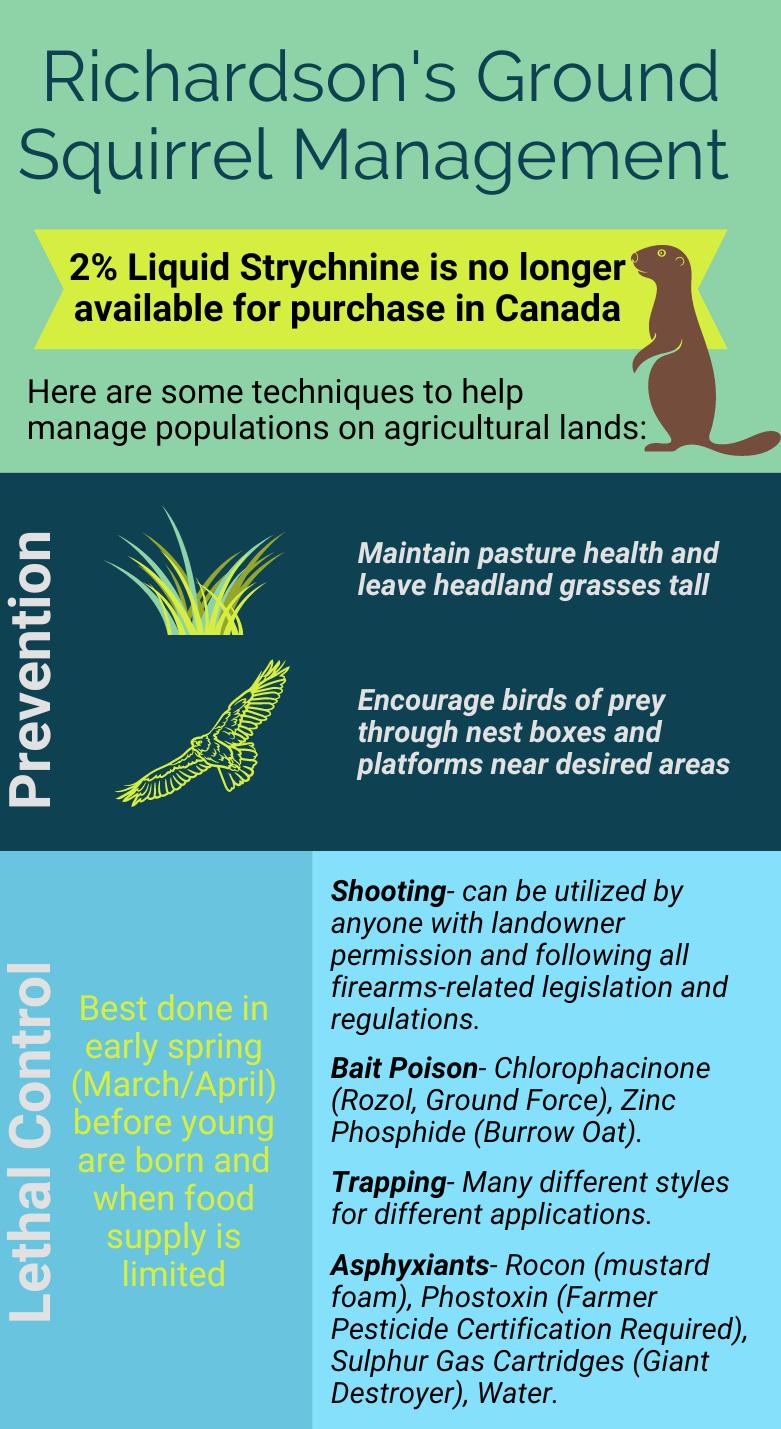
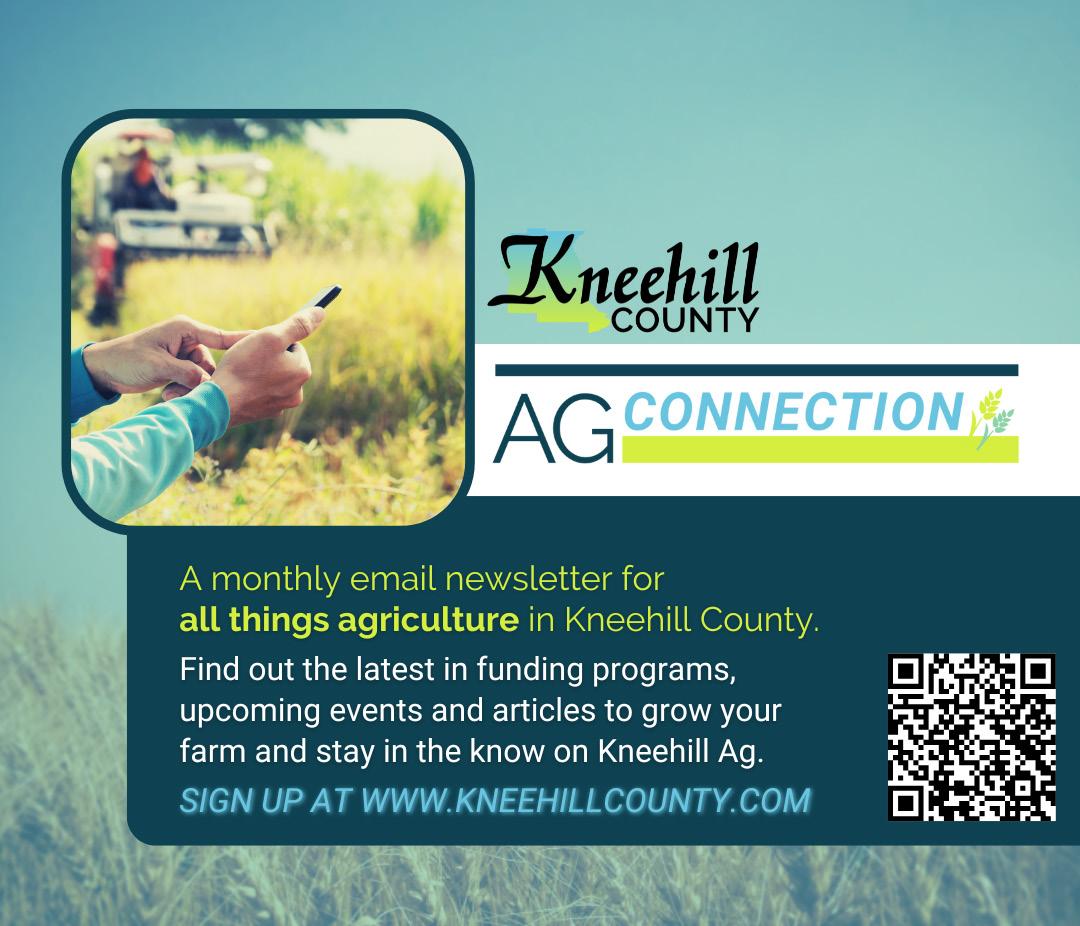


While burning may be the simplest way to clean up a site, you may be breaking the law.
Open burning, in a barrel or not, can release pollutants, reduce visibility, create unpleasant odors and cause toxic contamination. With this in mind, burning can still be an effective way to clean some of the debris from your yard, farm, or work site. However, you should keep in mind that under the Environmental Protection and Enhancement Act, burning certain materials is illegal.
Burnable debris includes:
• Brush and fallen trees
• Used power and telephone poles that DO NOT contain preservatives
• Wood or wood products NOT containing preservatives
• Solid waste from tree harvesting
• Straw, stubble, grass, weeds, leaves and tree prunings
• Solid waste from post and pole operations that does not contain wood preservatives
Hamlet Residents: Please note, burning barrels are not permitted in Kneehill County hamlets!

Prohibited debris includes:
• Animal manure
• Pathological waste (waste from human health centres)
• Wood or wood products containing wood preservatives
• Waste materials from construction sites
• Rubber, including tires
• Plastic, including baler twine
• Oil
• Containers that held pesticides, or any other chemicals
• Plastic or runner-coated materials, including copper wire
• Many items that you may consider burning can be recycled.
• Plastic, paper, cardboard and metal materials, used oil, tires and beverage containers, along with many other items, are recycled in Alberta. View page 12 to find recycling options in Kneehill County.
• It’s often more effective to chip and compost yard waste. Composting reduces household waste by up to 30 per cent.
A permit is needed to burn:
• Year round in Kneehill County. Resident can apply online for a burn permit. kneehillcounty.com/2278/Burn-Permits-Fire-Bans.
Source: Government of Alberta (2015)


Rural Road Construction $2,420,000
The reconstruction of rural roads, including grade widening, side slope rehabilitation, repair and removal of substructure failures, and improvements to the surface drainage systems, are all proposed with this road construction program. The roads that have been identified for reconstruction and repair include:
• 200m of grade widening and elevating on RR 25-5 south of Hwy 582
• 250m of grade widening and elevating on RR 25-0 north of TWP 30-4
• 250m of grade widening and sideslope work on RR 24-1 north of TWP 30-0
• Slope stabilization on RR 21-2 south of TWP 28-0
BF #70988 Liner (NW-15-28-21-W4) $401,500
Installation of a 1.2m culvert liner at the water crossing to ensure efficient water flow. The dimension of this liner is considered hydraulically appropriate for this area, as well as offering significant cost savings as it requires minimal ground disturbance during installation.
Keiver’s Lake Road Surface Upgrade $121,000
Significantly reworking the oiled road surface on RR 26-0 (Keiver’s Lake Road) from Hwy 583 south 1 mile to TWP 31-5. Includes the application of approximately 40,000L of refined oil and road crush gravel to provide a smooth and safe driving surface for users of the road.
Buffalo Jump Road Seal Coat $1,683,000
The reseal coating of TWP 34-4 (Buffalo Jump Road) from Hwy 21 to 800m east of RR 22-1 includes the application of a seal coat aggregate and bituminous oil on 17km of 9.0m wide roadway, as well as providing contingency for any unforseen road structure failures that may need to be addressed and repaired prior to application of the seal coat.
Bridge Maintenance $220,000
Bridge maintenance involves essential repairs and upgrades aimed at extending the lifespan of bridges and ensuring they continue to provide reliable service. The 4 bridges involved in this project include:
• BF 7373 (NW-22-30-23-W4)
• BF 1876 (NW-10-30-25-W4)
• BF 7027 (SE-14-31-24-W4)
• BF 1283 (SE-29-34-25-W4)
BF #13480 (SW-36-33-25-W4) $88,000
Engineer and design a plan to replace BF 13480 due to its low structural rating of 33.3%. This rating presents considerable risk if it continues to decline. A further reduction in the structural rating could result in weight restrictions, adversely affecting transportation efficiency and safety.
Following robust engagements with residents, a Public Hearing for the proposed MDP Bylaw (1905) was held in Council Chambers on Tuesday, November 26, 2024. The bylaw has been given first and second reading by Council.
Deliberations on the MDP Bylaw will continue at a future Council meeting. Stay turned to our website or social media for more information.
You can pick up a physical copy of the draft MDP at the Kneehill County office, or view the draft bylaw online.
Scan the QR code or visit: kneehillcounty.com/2318/Municipal-Development-Plan.

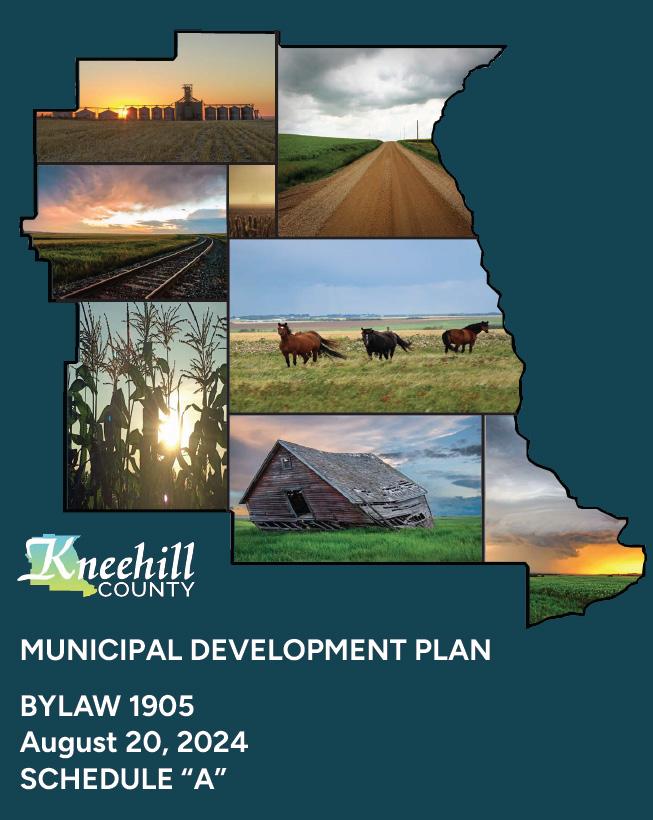
Sprinkle Kindness Campaign
Month of February
To participate in this year’s colouring campaign, obtain a sheet from Kneehill Regional FCSS or your area Family Wellness Worker. Draw, decorate or write ways to show kindness. Return your completed sheet where you picked it up by February 28. Entries will be displayed at the Kneehill Regional FCSS office or your school.
Families Connect Through Art Workshops
First Friday of every month, 5:30 – 7:00 PM (Three Hills) Grades 1 – 6
Parents and their children are invited to participate in art activities side by side to creatively express themselves, gain selfawareness and open the door to communication with family members. No artistic skills needed! New theme each month.
Mother Daughter Circle
Every second Thursday, February 13 – May 22 7:00 – 8:00 PM (Linden)
Mothers or female caregivers and their teenage daughters join together to strengthen their bonds through shared listening, creative expression, and skill building activities.
February Break Art Camp (Grades 1-4)
February 18 - 21, 9:00 AM – 12:00 PM (Three Hills) Come play fun games and create awesome art projects!
True Parenting
March 6, 6:30 – 8:30 PM (Three Hills)
Learn how to apply True Colors concepts to the difficult job of parenting. Enhance your parenting communication, motivation, discipline and building self-esteem. Better understand yourself and other family members by learning their different personality types.
Youth Skill Zone Series (Ages 14 – 18)
Job Searching Skills
March 14, 2:00 – 3:00 PM (Three Hills)
Learn about basic job search skills with some hands-on practice from an Employment Skills expert.
Triple P Fearless
April 2, 9 and 16, 1:00 – 3:00 PM (Three Hills)
This free workshop offers tips and strategies for parents to help children ages 5-16 manage anxiety. Childcare available.
To learn more or register, contact 403-443-3800, angie@krfcss.com or visit www.krfcss.com
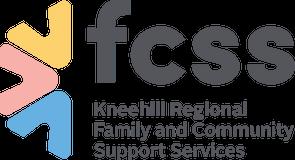

Kneehill Connect is our new virtual office, giving you 24/7 access to County services from anywhere.
• Pay bills online, including taxes
• Check account balances anytime
• Request tax certificates quickly and easily
With the launch of Kneehill Connect, the County will now accept credit card payments for taxes—a new, convenient option for residents. While credit cards were previously accepted for other transactions, this is the first time they can be used for tax payments.
To offset credit card processing costs, a 2.5% convenience fee will now apply to all credit card transactions, including tax payments. Payments made by cheque, cash, online banking, or pre-authorized payments will not be subject to this fee.
You’ll need:
• Your latest tax bill, invoice, or accounts receivable statement.

• Your Customer ID, Account Number, or Roll Number (available on your statement). (If you’re unsure of your Customer ID, please call us at 403-443-5541.)
• An active email address.
Scan the QR code for details or visit www.kneehillcounty.com/2500/Kneehill-Connect to get started today!
For any questions, contact our office at 403-443-5541.
Kneehill County reviews its Master Rates Bylaw annually to ensure fees for municipal goods and services remain fair and up to date. As part of the 2025 budget process, the following rates have been increased:
Hamlet Residential pick-up has increased from $50.00 bimonthly per residence to $55.00 bimonthly per residence as service costs have increased.
$4.85/cubic meterto $5.15/cubic meter (minimum $10 fee per monthly bill) to align with the approved $.30 cent Operating Budget rate increase.
Huxley and Wimborne water rates from $2.35/cubic metre $2.55/cubic metre to align with the approved $.20 cent Operating Budget rate increase.
Water Distribution System (Gamble, Grainger, Kirkpatrick, Equity, Mount Vernon, Aqua 7) rate increase from $3.85/cubic metre to $4.05/cubic metre to align with the approved $.20 cent Operating Budget rate increase.

Kneehill County is participating in the Business Retention & Expansion & Workforce Development initiative, also known as BREWD, to create a thriving business environment that supports existing enterprises while also attracting investment. BREWD is more than just a survey or an assessment. It’s an opportunity for us to listen to each of our valued businesses and producers, to understand the challenges you face, and to create actionable steps to help you overcome them.
Your feedback will guide us in developing a roadmap to support job creation, foster innovation, workforce development, and long-term business retention and expansion. By participating, and engaging others to participate, you are helping us create a foundation for growth that will benefit not only today’s businesses but future generations.
Your input matters. This is your opportunity to influence and make a positive impact on the community we all care so deeply about.
Did we mention there are prizes to be won? Scan the QR code below to take the survey today!

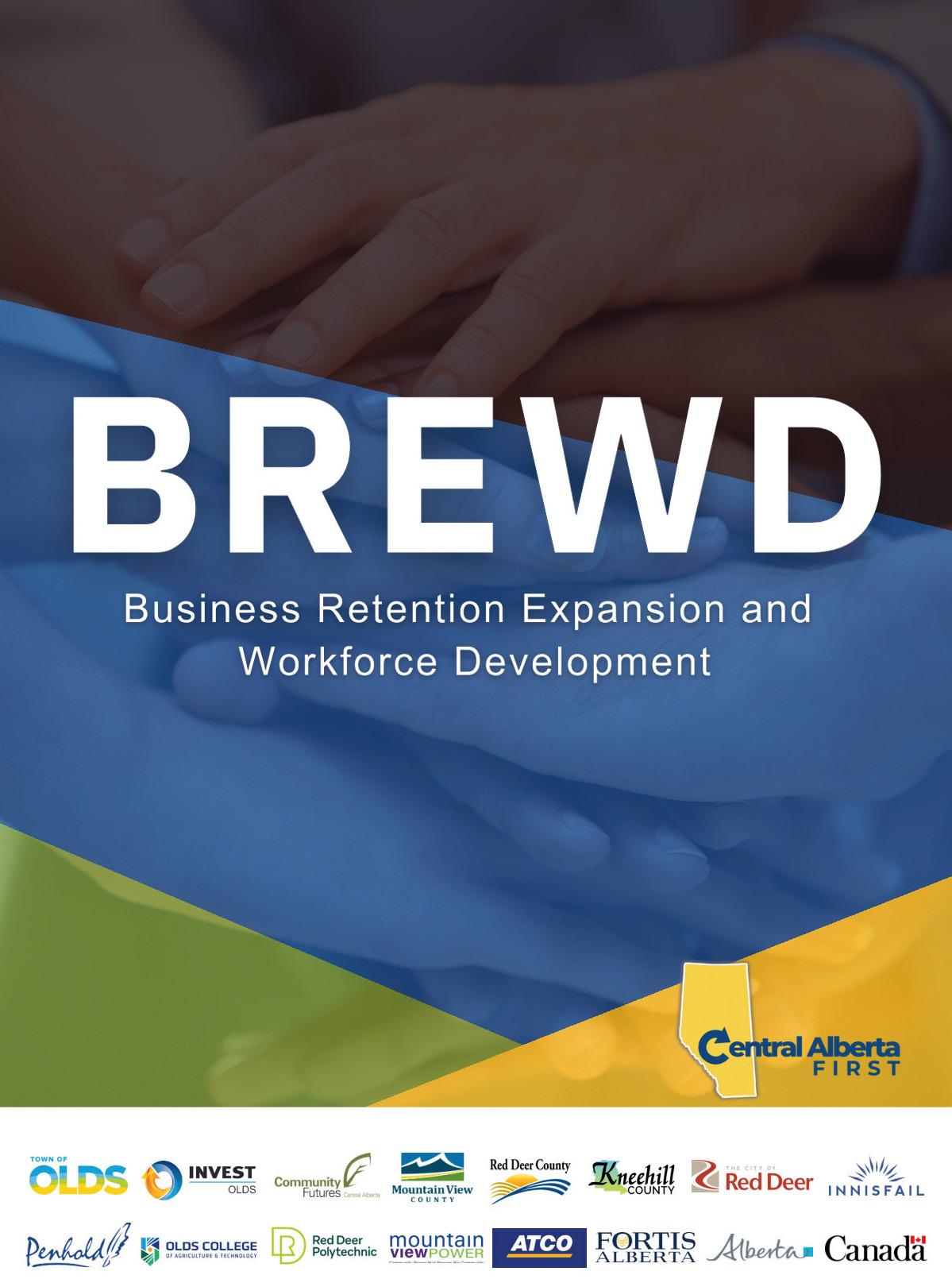
Kneehill County adopted an Economic Development Plan in November of 2024. The plan provides a three-year strategic roadmap to guide the County towards sustainable economic growth, which will be accomplished through long-term planning, collaborative solutions, and a commitment to investing in our community.
The Economic Development Plan:
• Outlines actionable strategies and objectives aligned with the community’s vision and aspirations.
• Is a working document for administration to continuously monitor current progress.
• Aligns with the County’s Strategic Plan, Municipal Development Plan, and Land Use Bylaw.
• Aims to build a resilient and diverse economy by enhancing the livelihoods of its businesses and residents to position the County as an attractive destination for investment and growth.
View the Economic Development Plan on our website: kneehillcounty.com/2505/Economic-Development-Plan
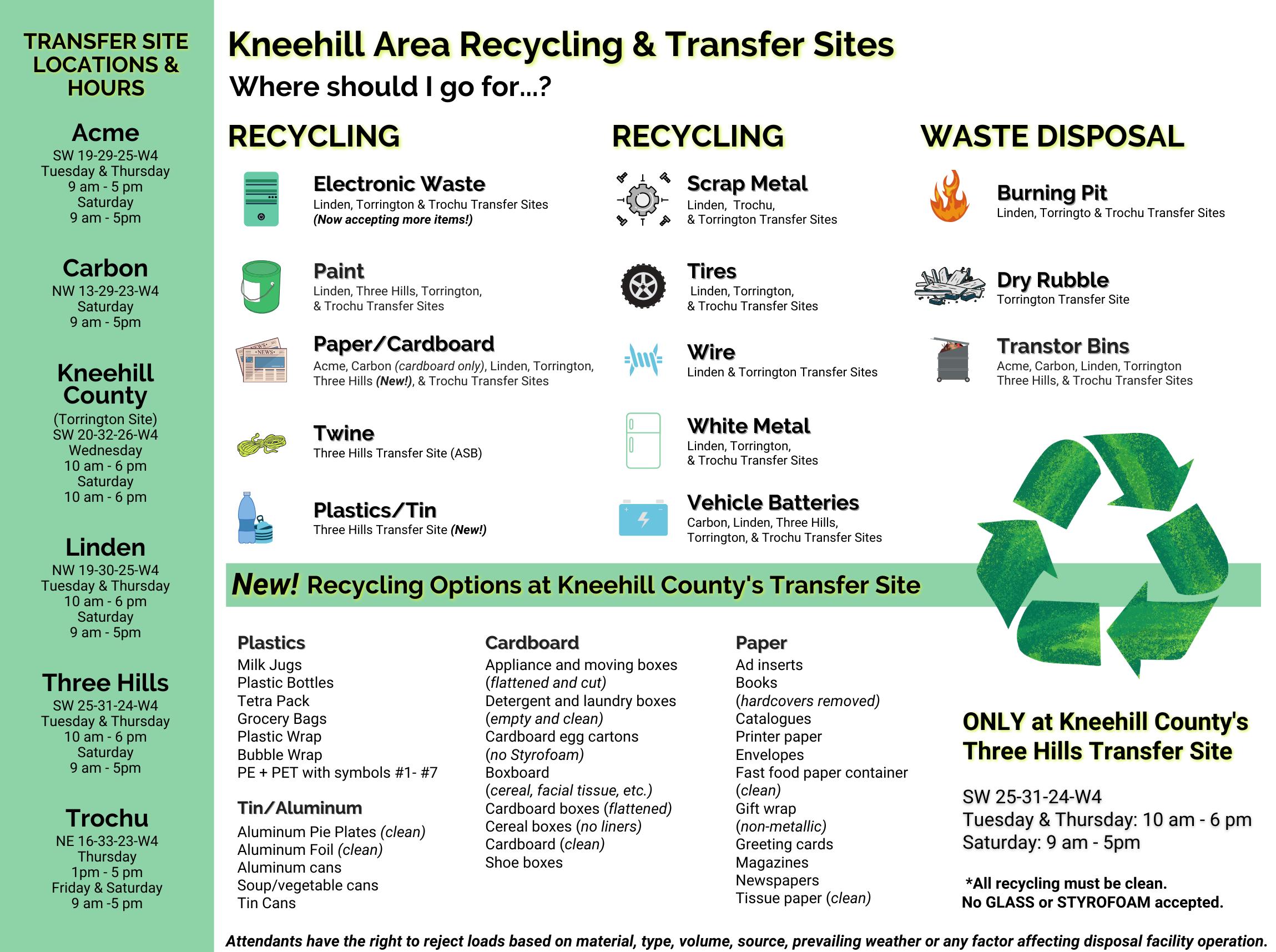
Please be advised: as of January 1, 2025, use of the Torrington Landfill is restricted to Kneehill County ratepayers and residents only. (You must live or own land in the County, outside of towns and villages.) Call the office for more information: 403-443-5541.
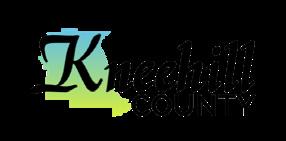
Box 400
Three Hills, AB
T0M 2A0
